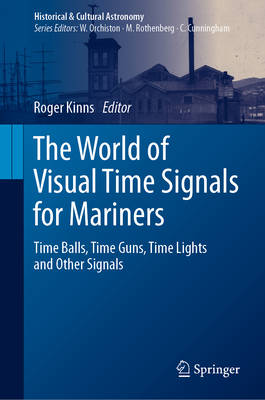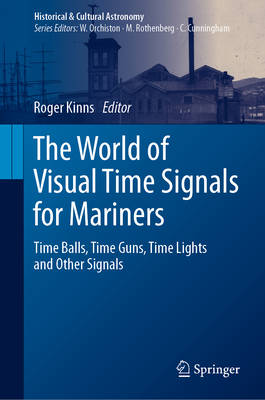
- Retrait gratuit dans votre magasin Club
- 7.000.000 titres dans notre catalogue
- Payer en toute sécurité
- Toujours un magasin près de chez vous
- Retrait gratuit dans votre magasin Club
- 7.000.0000 titres dans notre catalogue
- Payer en toute sécurité
- Toujours un magasin près de chez vous
The World of Visual Time Signals for Mariners
Time Balls, Time Guns, Time Lights and Other Signals
Description
This book describes the worldwide evolution of land-based visual time signals that were used by mariners in the nineteenth and twentieth centuries for accurate navigation at sea. They followed development of chronometers which were carried in ships to show mean time at Greenwich, the chosen prime meridian. Greenwich time could be compared with local astronomical time to determine longitude, but chronometers were mechanical devices that had to be checked for accuracy. Land-based signals that were regulated by astronomical observations evolved from the ideas in 1818 of Robert Wauchope, a British naval officer who served at the Cape of Good Hope. He inspired introduction of time balls, specifically the time ball at Greenwich in 1833 which set the standard for subsequent installations and is still in operation today. The main emphasis is on the external appearance of time signals at different locations around the world and how they were used by mariners for rating chronometers. Time balls and guns also became popular signals for public use and workplace control but then had social and political implications.
Spécifications
Parties prenantes
- Editeur:
Contenu
- Nombre de pages :
- 471
- Langue:
- Anglais
- Collection :
Caractéristiques
- EAN:
- 9783031573330
- Date de parution :
- 19-11-24
- Format:
- Livre relié
- Format numérique:
- Genaaid
- Dimensions :
- 163 mm x 237 mm
- Poids :
- 952 g

Les avis
Nous publions uniquement les avis qui respectent les conditions requises. Consultez nos conditions pour les avis.





